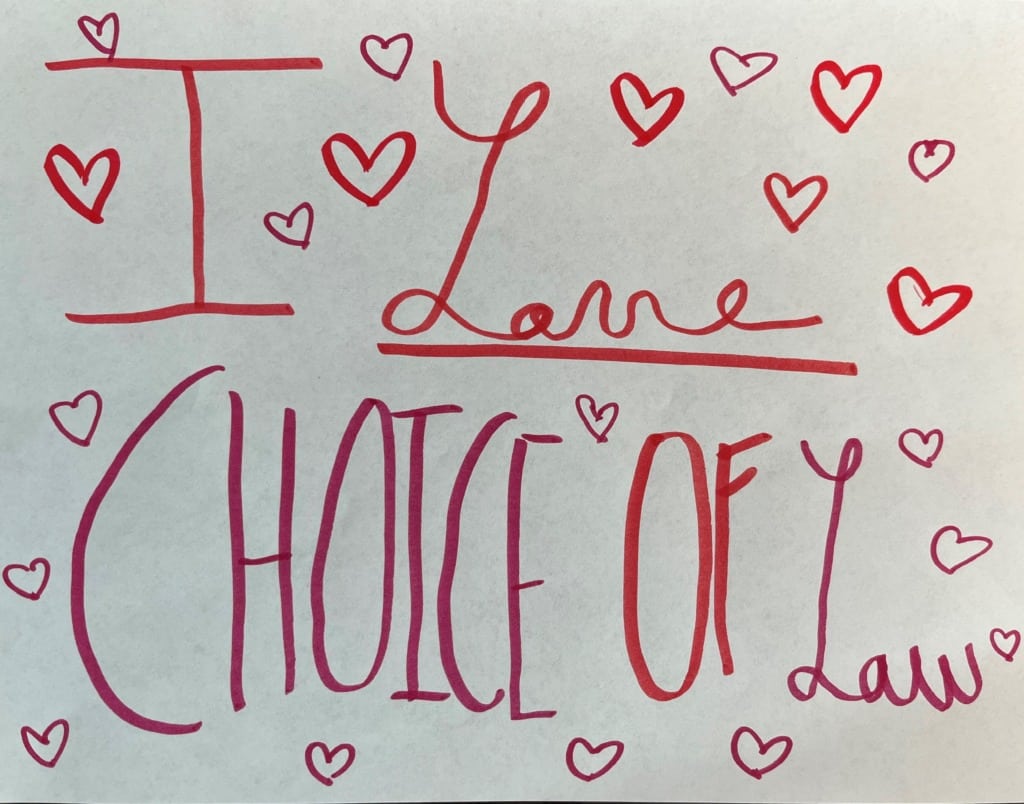PGA v. LIV: Golf, Discovery, Immunity and PIF — The Saudi Arabian Sovereign Wealth Fund
Just as the competition between PGA Tour and LIV Golf has divided the golf world, so too may the immunity issues raised by the litigation divide legal experts. Sadly, this post is pretty weak in terms of golf puns – par for the course in legal writing about immunities – but it does address interesting…
Continue ReadingAn Exemplary Decision
It is important to have high standards… especially when it comes to forum selection clauses, personal jurisdiction, and forum non conveniens. Since its inception, this blog has discussed a number of judicial decisions where these high standards were not fully met. One can find posts offering criticism here and here and here and here and…
Continue ReadingThrowback Thursday: Forty Years of the Bancec Test
The Supreme Court’s 1983 decision in First National City Bank v. Banco Para El Comercio Exterior de Cuba was saddled with a cumbersome mouthful of a title, one confusingly similar to a 1972 opinion in another important case, First National City Bank v. Banco Nacional de Cuba. Fortunately, the 1983 decision was quickly dubbed Bancec, an…
Continue ReadingChoice of Law in the American Courts in 2022
The thirty-sixth annual survey on choice of law in the American courts is now available on SSRN. The survey covers significant cases decided in 2022 on choice of law, party autonomy, extraterritoriality, international human rights, foreign sovereign immunity, foreign official immunity, the act of state doctrine, adjudicative jurisdiction, and the recognition and enforcement of foreign…
Continue ReadingHome Isn’t Just Where the Nerve Center Is
An opinion last month issued by a Texas appellate court illustrates a tempting but potentially dangerous doctrinal shortcut: applying a test developed for subject matter jurisdiction to the analysis of general personal jurisdiction. The diversity statute (28 U.S.C. § 1332) defines a corporation’s citizenship as its place of incorporation and its “principal place of business”…
Continue ReadingBeer Halls and Forum Selection Clauses
Homer Simpson once described alcohol as the “cause of, and solution to, all of life’s problems.” The same can be said for forum selection clauses. In the hands of the cognoscenti, these provisions can operate as magical elixirs that completely insulate a litigant from liability. In the hands of those unfamiliar with their intricacies, these…
Continue ReadingRecapping Media Coverage of Mallory
Last Tuesday, the Supreme Court heard oral arguments in Mallory v. Norfolk Southern Railway Co., a personal jurisdiction case on review from the Pennsylvania Supreme Court. Robert Mallory, a Virginia resident employed in Virginia and Ohio, sued Norfolk Southern, then based and incorporated in Virginia, in Pennsylvania state court. The case asks the Supreme Court…
Continue ReadingCert Petition Raises Personal Jurisdiction Question in Context of the TVPRA
The Trafficking Victims Protection Reauthorization Act (TVPRA) explicitly authorizes extraterritorial application to six predicate offenses (18 U.S.C. § 1596) and creates a private right of action (18 U.S.C. § 1595). Assuming without deciding that § 1595’s civil remedy extends extraterritorially to the same extent as those six predicate offenses, the Ninth Circuit in Ratha v….
Continue ReadingConsent and Personal Jurisdiction: The Mallory Oral Argument
On Tuesday November 8, 2022, the U.S. Supreme Court heard oral argument in Mallory v. Norfolk Southern Railway, a case that Reuters called “a sleeper case . . . [that] could be a nightmare for corporations.” The case involves a railway worker, Robert Mallory, a resident of Virginia, who had worked for Norfolk Southern for…
Continue ReadingOral Argument on Personal Jurisdiction Today
The Supreme Court will hear oral argument today in Mallory v. Norfolk Southern Railway, a personal jurisdiction case in which the defendant “consented” to general jurisdiction in Pennsylvania based on a corporate registration statute. Although Mallory itself involves no transnational facts, the case could have important implications for foreign defendants. Pennsylvania’s registration and long-arm statutes,…
Continue Reading








